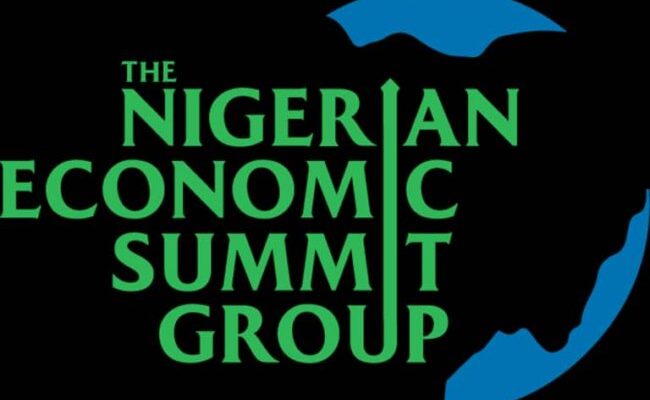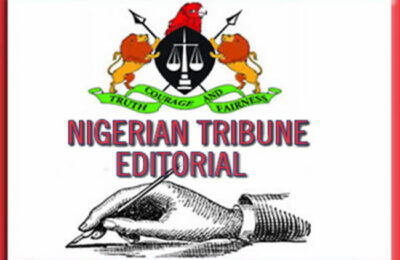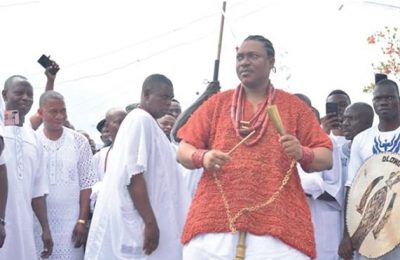The Nigerian Economic Summit Group (NESG) has inaugurated its national economic advisory council to strengthen its mission of fostering an open, inclusive, sustainable, and globally competitive Nigerian economy.
The council was launched on over the weekend at the NESG office in Abuja, and consists of distinguished economic experts with significant research experience in African and Nigerian economic issues.
The council will convene quarterly to receive briefings on the Nigerian economy, deliberate on key findings and challenges, and provide strategic advice to the NESG on short, medium, and long-term economic policy advocacy.

In a communication, the NESG said, “Additionally, the council will hold an annual retreat to evaluate and refine the NESG Research Agenda and assess its impact on NESG’s advocacy and reform activities.”
In his remarks, NESG Chairman, Niyi Yusuf emphasised the urgency of inaugurating the council in light of ongoing economic challenges such as the rapid implementation of fuel subsidies and exchange rate reforms, food insecurity, declining living standards and poor Human Capital Development (HCD) indicators, among others.
He said: “Nigeria has encountered various economic and political obstacles in recent years, underscoring the urgent need to redesign its systems and address structural issues.
“One of Nigeria’s pressing concerns is translating economic growth into improved lives and livelihood of all its citizens. Despite experiencing growth, the country grapples with income disparity, multidimensional poverty and working poverty. These challenges are worsened by an uneven allocation of resources, macroeconomic instability, and institutional deficiencies.”

Yusuf highlighted the role of the council, comprising some of the most brilliant and experienced minds, in guiding the NESG on the evolving economic development philosophies, policy frameworks, and approaches that align with its mission.
“With your support, the NESG will continue to lead the charge in economic policy advocacy, fostering an environment where the private sector can thrive and contribute to the nation’s development. We are deeply grateful and I express my deepest appreciation to each of you for accepting this invitation to serve and drive meaningful change that can shape the future of our economy,” he said.
The newly inaugurated council members include: Professor Osita Ogbu, Co-Chair; Dr. Mohammad Sagagi, Co-Chair; Dr. Friday Kanu Ohunche; Professor Risikat Oladoyin Dauda, Professor of Economics, University of Lagos; Dr. Yemi Kale, Group Managing Director, Research and Trade Intelligence & Group Chief Economist at the African Export-Import Bank; Professor Jonathan Aremu, Professor of International Economic Relations; Dr. Aloysius Uche Ordu, Professor Ummu Ahmed Jalingo and Dr. Adedoyin Salami.
Professor Ogbu is a Professor of Economics and former Director of the Institute for Development Studies at the University of Nigeria, Nsukka (UNN).
He also is the Managing Director/CEO of African Development Solutions International (ADSI), a knowledge-based consulting firm based in Abuja.
Sagagi is an Economist and Development Consultant with a strong academic background and extensive private and public sector experience in Nigeria.
Over the years, he has participated in several Federal, State and Local Governments of Nigeria reform programmes including the development of the Nigeria Vision 20: 2020, and a number of sub-nationals’ development strategies and frameworks.
Ohuche is currently Senior Policy and Research Consultant Adviser to African Development Bank Group (AfDB). In addition, he currently Chairs the Economic Governance Sub- Committee of African Union/ APRM Expert Committee on the development of Governance Index for African Peer Review Mechanism (APRM). Before joining African Development Bank Headquarters, Dr. Ohuche served as the Policy Economist for Non- Lending Policy Dialogue for Nigeria.
Professor Dauda is a Professor of Economics of the University of Lagos.
She has a wealth of experience in teaching, research and consultancy on issues of African development. Her research interests cut across economics and social development with emphasis on themes relating to education, health and human capital, poverty and inequality, income distribution, human development, gender and development finance among others. She has authored several scientific publications in peer-reviewed internationally ranked journals.
Kale is currently Group Managing Director, Research and Trade Intelligence & Group Chief Economist at the African Export-Import Bank. Before this role he was Partner and the Chief Economist/Head of West African Research at KPMG Financial Services, where he not only led KPMG’s West African Research and Insights team but was also in charge of the Firm’s view on Macroeconomics and enhanced its growth agenda by both supporting and originating engagements involving modelling and econometrics.
Professor Aremu, is a Professor of International Economic Relations and a former Acting Vice Chancellor of the Covenant University(CU), Ota, Nigeria between 2004 and 2005. He is also a Consultant, at ECOWAS (Economic Community of West African States) on Common Investment Market (ECIM), Abuja.
Ordu is a member of the Monetary Policy Committee of the Central Bank of Nigeria. He is also a Nonresident Senior Fellow at the Brookings Institution.
He previously served as Director of the Africa Growth Initiative in the Global Economy and Development program at Brookings. Prior to joining Brookings, he was Managing Partner at Omapu Associates LLC, a boutique advisory services and consulting firm.
Professor Jalingo, a distinguished economist and academic, has made significant contributions to the field of economics and education in Nigeria. Hailing from Gombi Local Government Area of Adamawa State, she is celebrated as the first female Professor of Economics from Northern Nigeria.
Salami is currently Managing Director and Chief Executive Officer (CEO) of KAINOS Edge Consulting Ltd. – a Management Consulting firm focused on markets research and corporate governance consulting.
He has recently returned to this role after completing an 18-month stint as Chief Economic Adviser (CEA) to President Mohammadu Buhari.
Meanwhile, the council’s co-chair tenure is two years, renewable for two additional terms, upon review by the NESG board. council members can have a term of three years, renewable for two additional terms upon review by the board.
ALSO READ THESE TOP STORIES FROM NIGERIAN TRIBUNE
Disclose monthly running costs of NASS, SERAP tells Akpabio, Abbas







